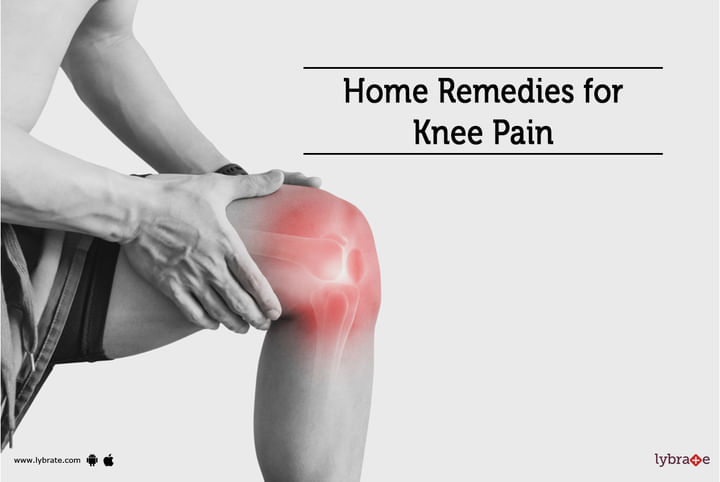Home Remedies for Knee Pain
Knee pain is not just something that elderly people experience or often complain of. In fact, knee pain is a condition that can affect any individual person at any age. You should also know that joint pain in general is something that a lot of people suffer from, but it is especially common in the knees.
As we age, we might start to experience aches and pains in our joints due to tissue degeneration. Knee joint pain, for instance, can be caused by overuse of the joint, damage or injury, or a condition known as arthritis.
If you are experiencing knee pain, the first thing we would recommend is that you see your doctor as soon as possible. They have the best expertise in assessing your situation, running some tests, and determining the root cause of your pain.
However, there are also some home remedies that can work wonders and treat knee pain effectively for a lot of people. For instance, hot and cold compresses can help reduce inflammation and pain. You can also try massaging the affected area of your knee with some eucalyptus or peppermint oil.
Apart from these, some other great natural home remedies for knee pain are listed below:
Heat and Cold Therapy
Heat and cold therapy may be an easy way to relieve the symptoms of lower back pain or the pain of arthritis. It is also a relatively inexpensive option, whether you use a hot water bottle or make your own heat pack.
Applying heat to sore muscles can help relieve pain and stiffness, while ice can reduce inflammation and swelling. Some people may find that heat therapy in the form of heating pads, hot showers, or warm compresses can help improve mobility and reduce swelling. Try using a hot water bottle or a warm pad for heat and wrapping ice in a cloth for cold therapy.
However, it is advised that you always test a hot item before applying it, especially if it is for an older person or someone who cannot communicate easily. This ensures that the person can tolerate the heat and will not be burned in any way.
Ginger
One of the best ways to reduce inflammation and the pain that comes with a condition like arthritis is by drinking ginger tea. Ginger has great anti-inflammatory compounds that can help reduce or do away with the swelling in a person's knee.
To make ginger tea, the first thing you should do is brew fresh ginger in boiling water. After this, you can add a little honey and a few drops of lemon juice for flavor. You must drink at least a couple of cups of this tea every day until you feel your chronic knee pain going away.
Turmeric
The National Center for Complementary and Alternative Medicine, or NCCAM, suggests that turmeric roots may help to slow down or stop the progression of rheumatoid arthritis, which has been a leading cause of knee pain. Curcuminoids, the active compounds in turmeric, have been shown to reduce inflammation and are powerful antioxidants. These properties make curcuminoids effective in fighting diseases.
Turmeric can be consumed in many ways, including:
- Boil a half teaspoon of ground ginger and turmeric in a cup of water for at least 10 minutes, then strain the mixture (add honey to taste and drink this 'tea' concoction twice a day for best results)
- To make a turmeric milk drink, simply boil a teaspoon of turmeric powder in a glass of milk (you can add honey to sweeten the drink, and then drink it at least once a day)
However, if you are on blood-thinning medication, please exercise caution when taking turmeric as a remedy. It must be noted that this spice has blood-thinning properties, which can interact with your medication and cause undesirable side effects.
Tulsi or Holy Basil
The Tulsi, or holy basil, plant is called a wonder herb because it can treat everything from fever to joint pain. It can also work effectively to help relieve chronic knee pain. Tulsi (also known as holy basil or Ocimum sanctum) is an Indian medicinal herb that has a long history of use in Ayurvedic medicine.
Tulsi is part of the same family as sweet basil, and the name is derived from the word 'tulas'' in Sanskrit, which means 'twisted.' It has anti-rheumatic and antiseptic properties and is used to treat many conditions and disorders.
Tulsi is a plant that is widely used in Ayurveda. It is an antispasmodic that helps treat pain. It is also believed that the plant can soothe the nerves and reduce swelling as well as inflammation. All in all, tulsi is a very useful plant that has a lot of medicinal value for treating multiple diseases.
Brew a cup of water with a few leaves of Tulsi (Holy Basil) for a few minutes. Let the decoction sit for 10 minutes, then strain and drink it. Drink at least two or three cups of this delicious Tulsi tea every day until your knee pain eases.
Castor Oil
It can be a wonderful, natural remedy to ease joint pain in the knees. Castor oil, in fact, has been used for centuries as a natural remedy for joint pain and is even mentioned in the ancient Ayurvedic texts of Sushruta Samhita and Charaka Samhita for its ability to manage arthritis symptoms, especially the pain.
This oil is known as 'Eranda Tailam' in Sanskrit and is rich in ricinoleic acid, a powerful phytonutrient with anti-inflammatory properties. It helps to reduce pain and discomfort in the bones, muscles, and joints, making it a great natural remedy for various aches and pains.
You can use it by warming at least three tablespoons of castor oil and transferring it to a clean bowl. Then, gently massage it into both knees in circular motions for a couple of minutes each, applying moderate pressure.
Conclusion
We hope you found the information above useful and advantageous. By following these simple steps and remedies, you can relieve your chronic knee pain and improve your quality of life. If you want a more permanent solution, you should talk to your doctor about knee replacement surgery



+1.svg)
